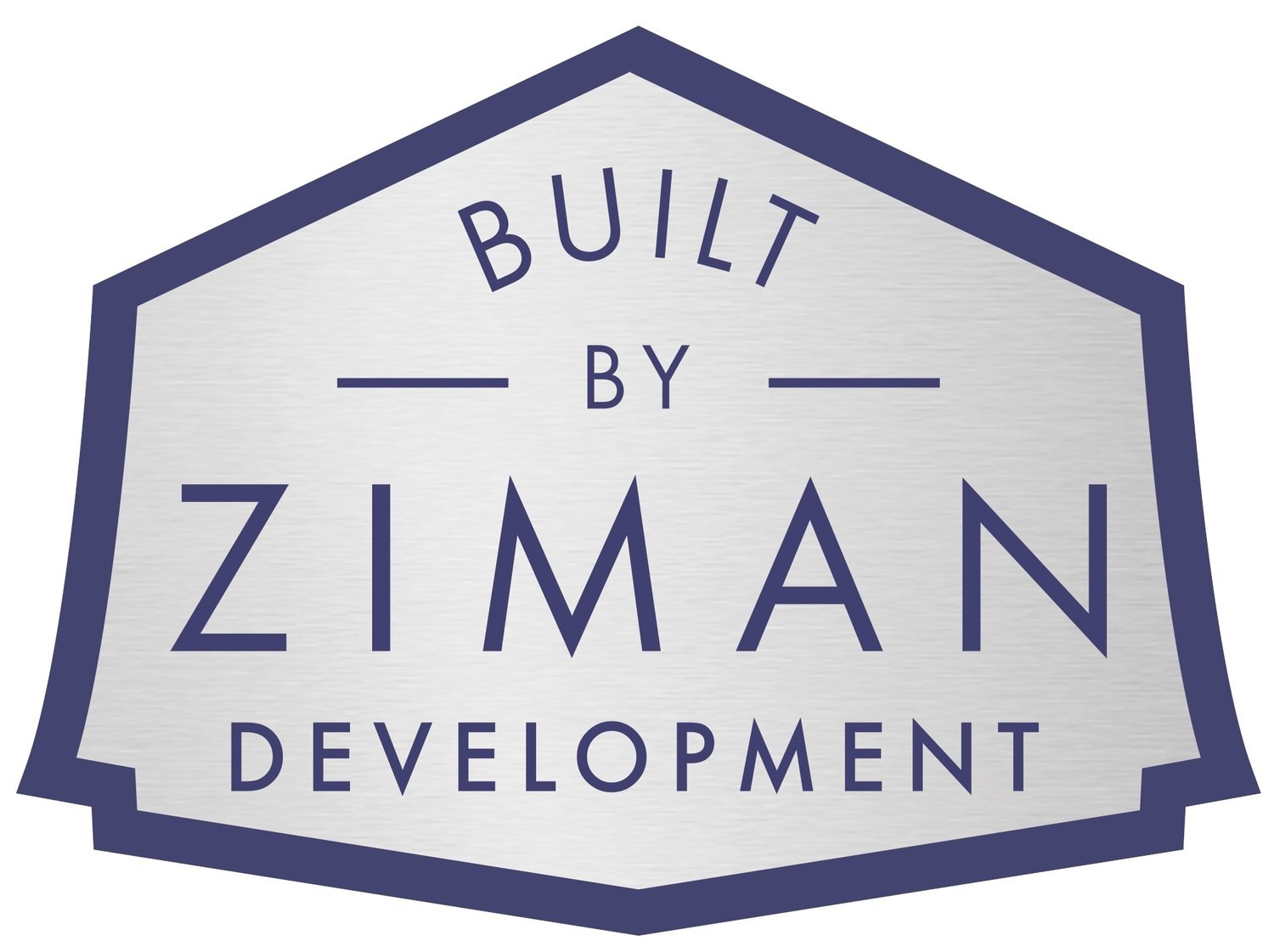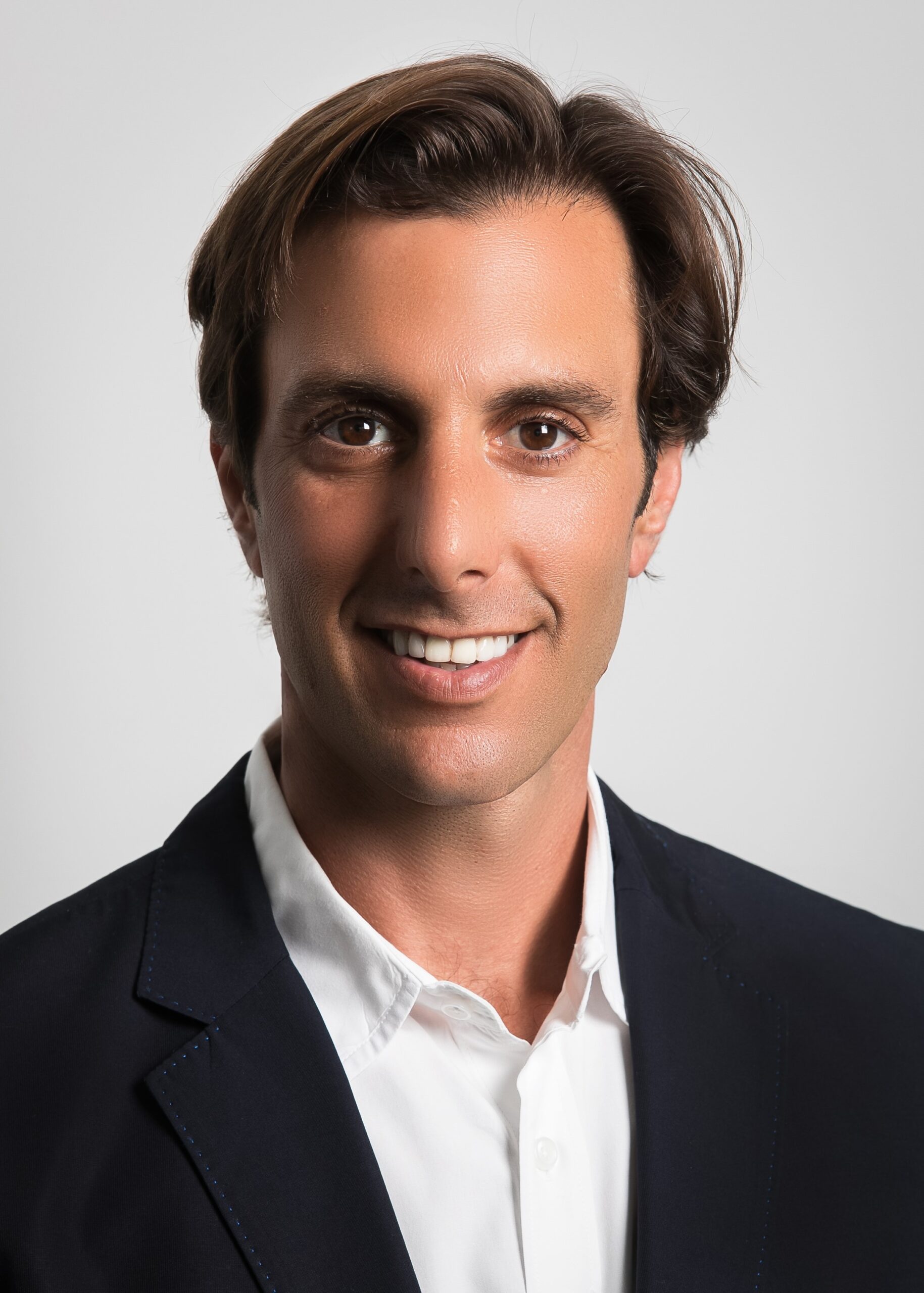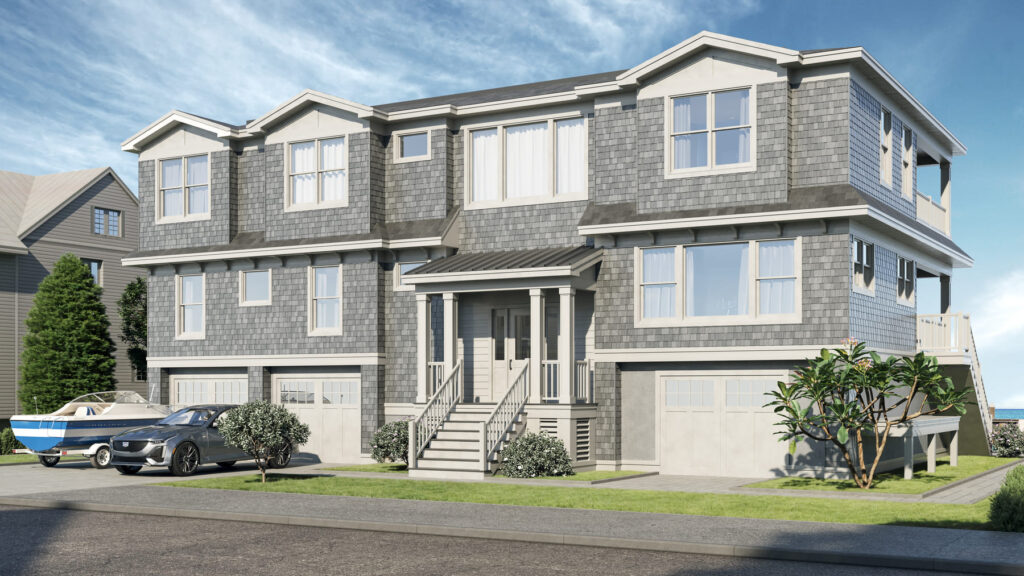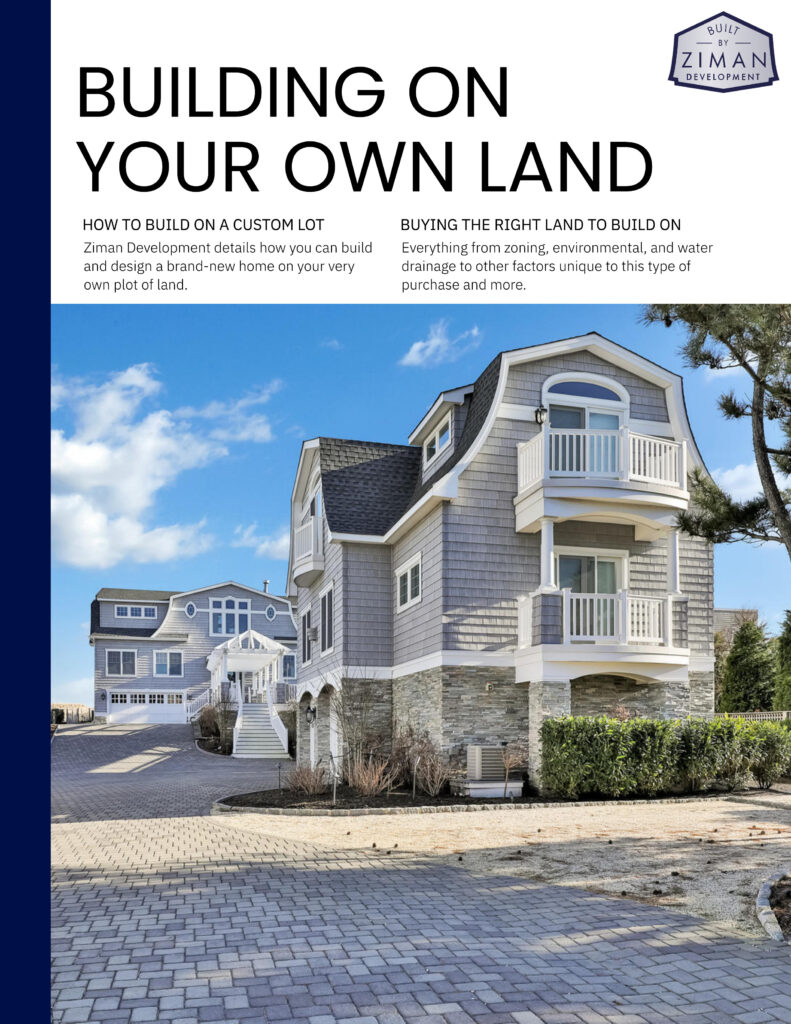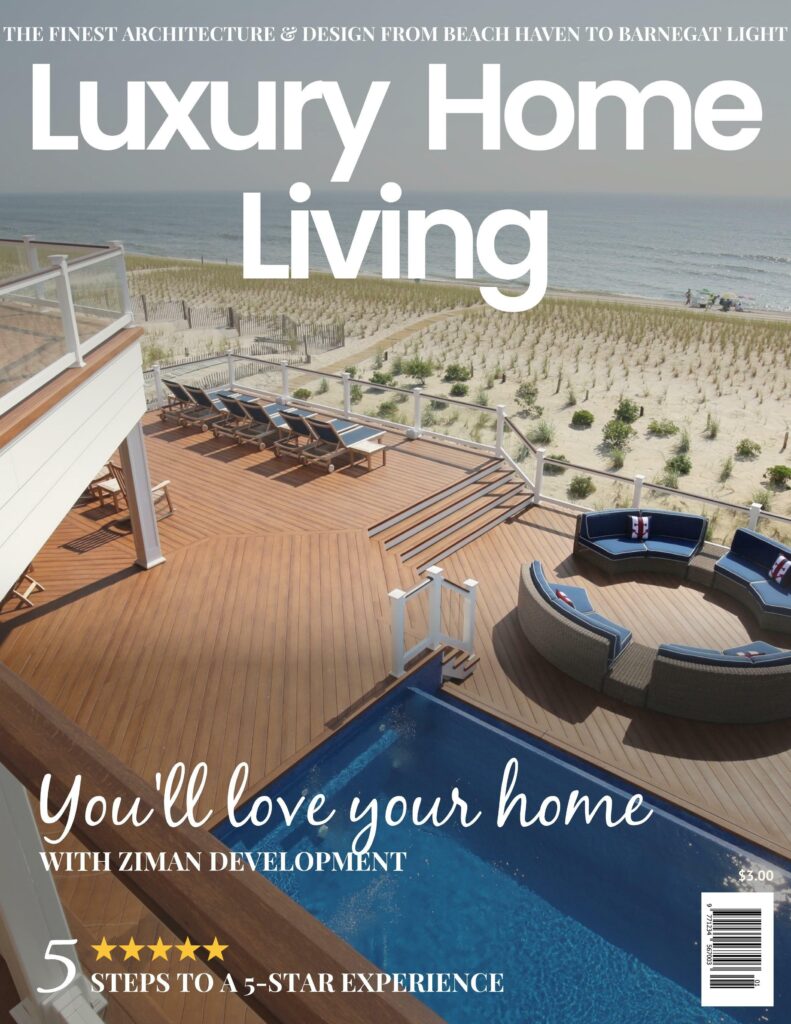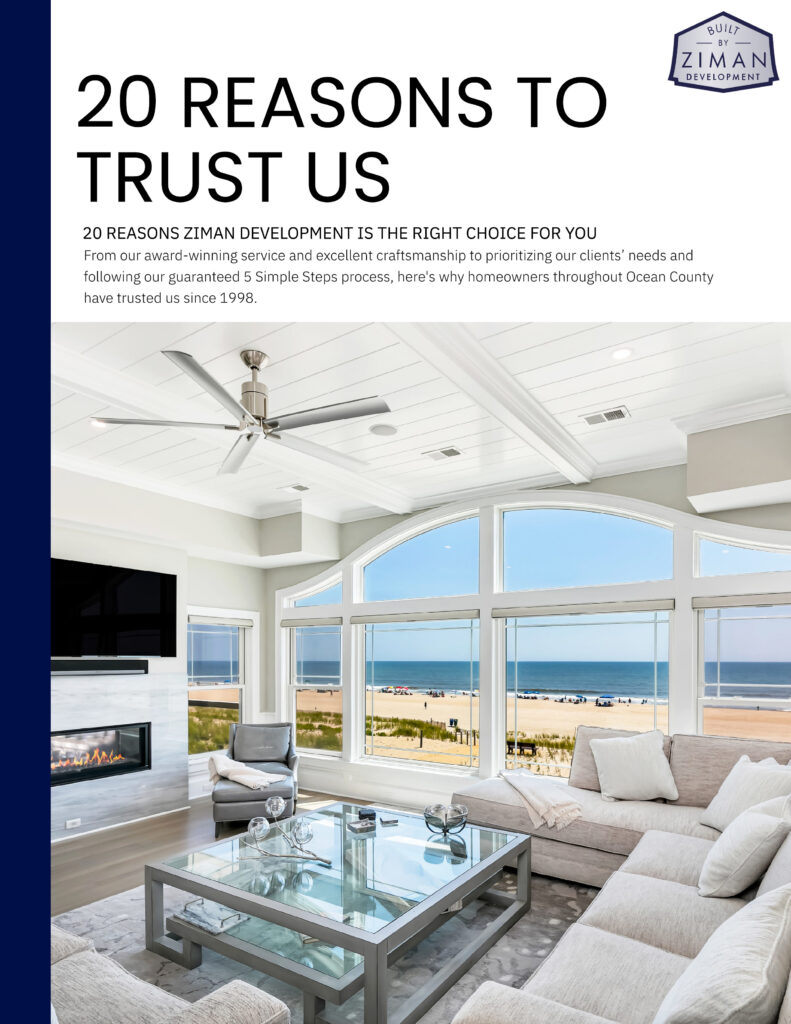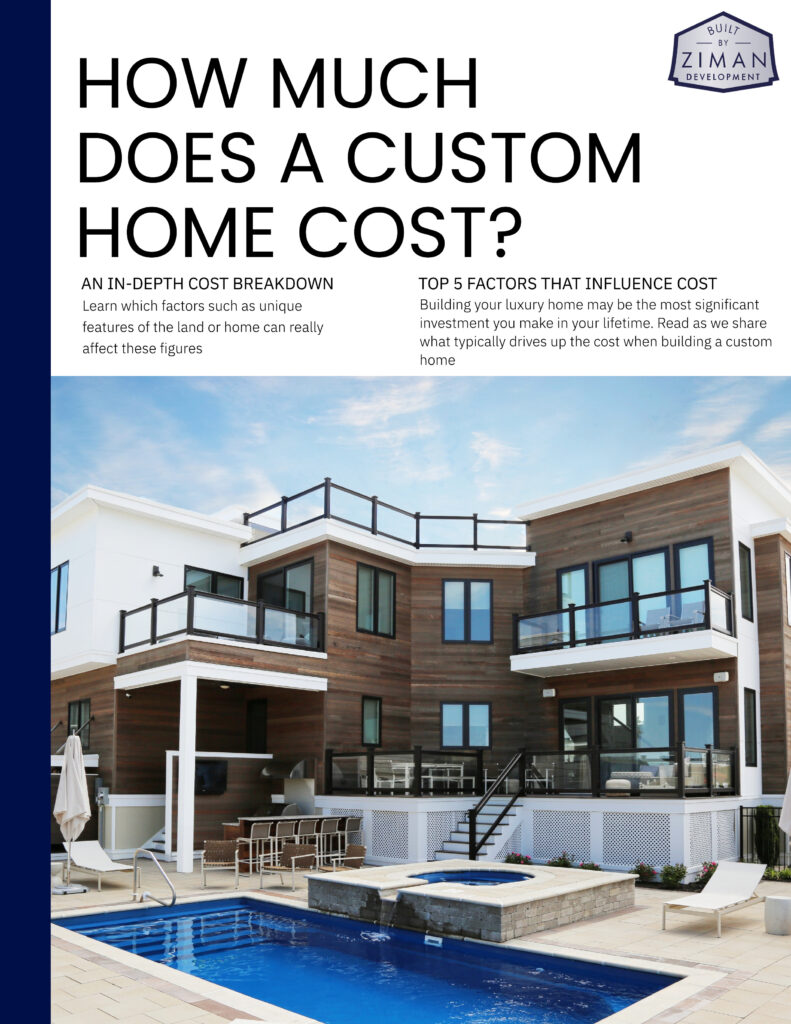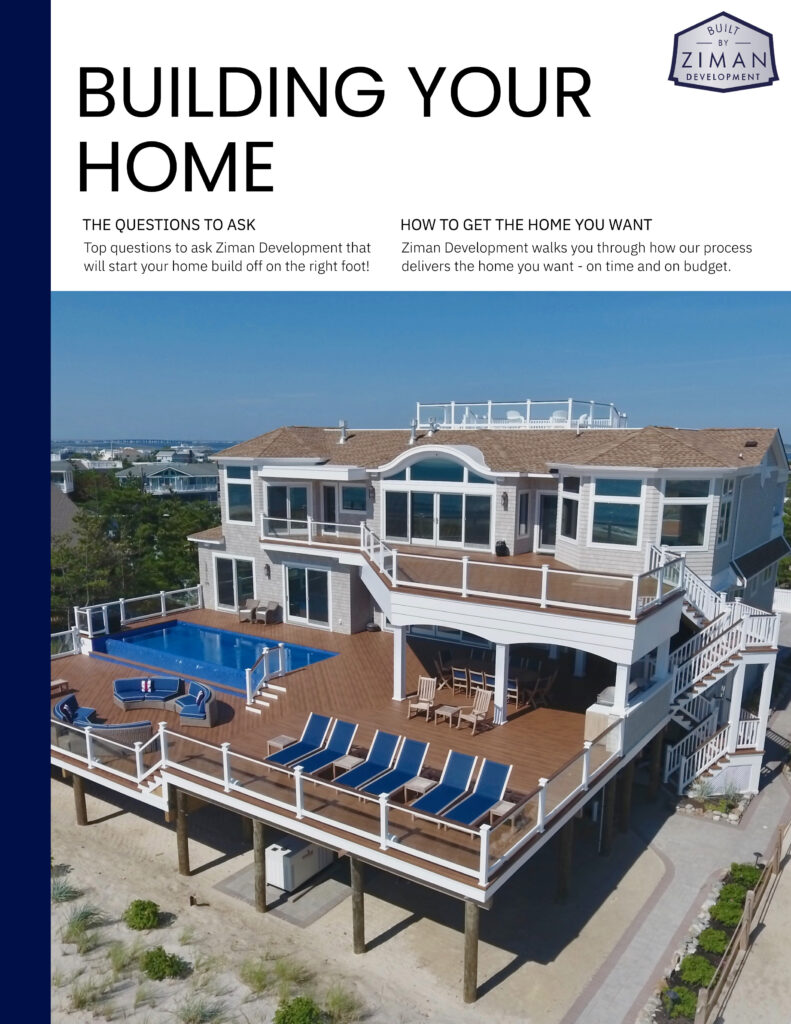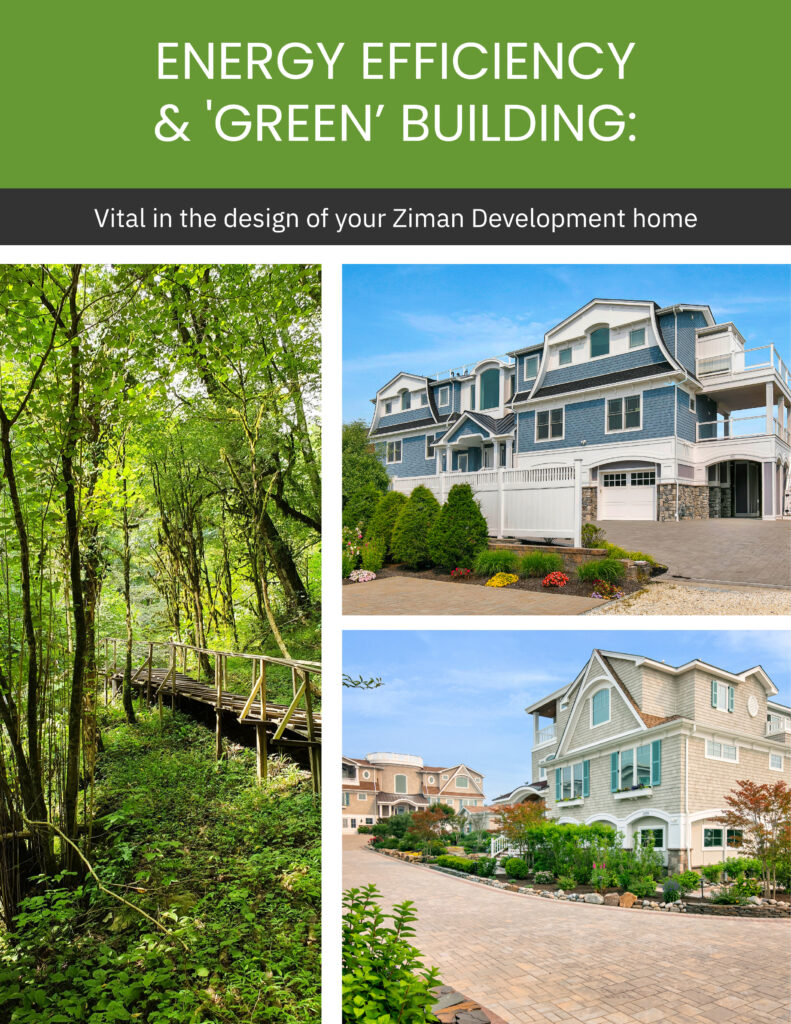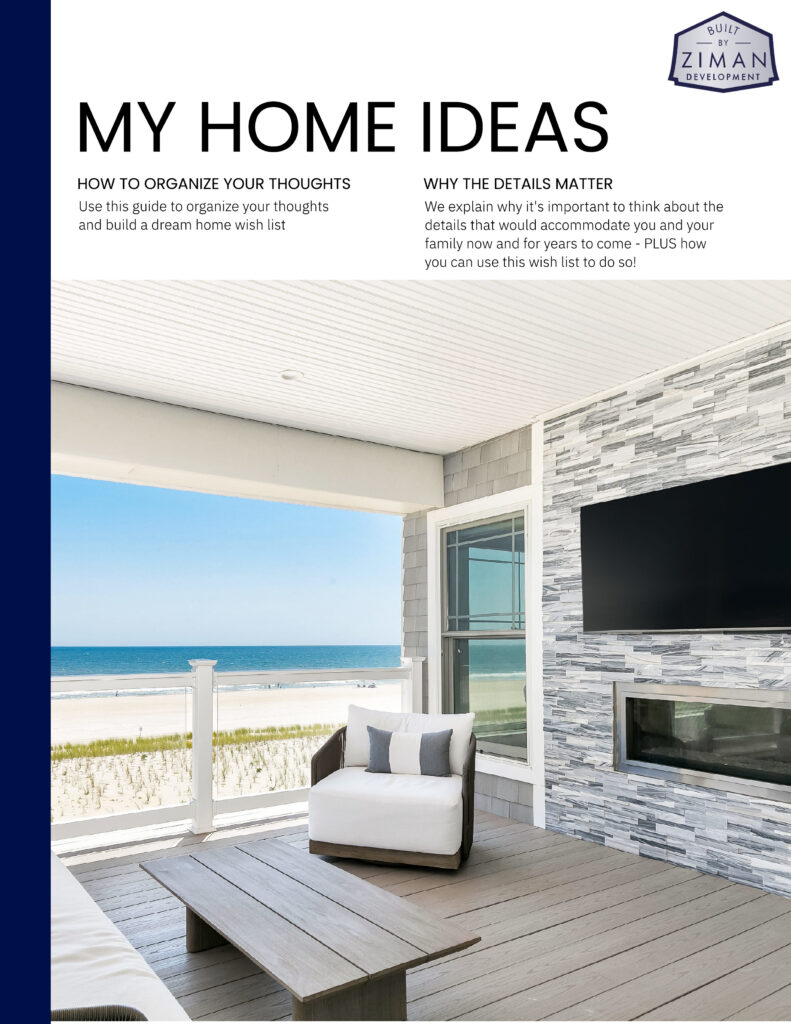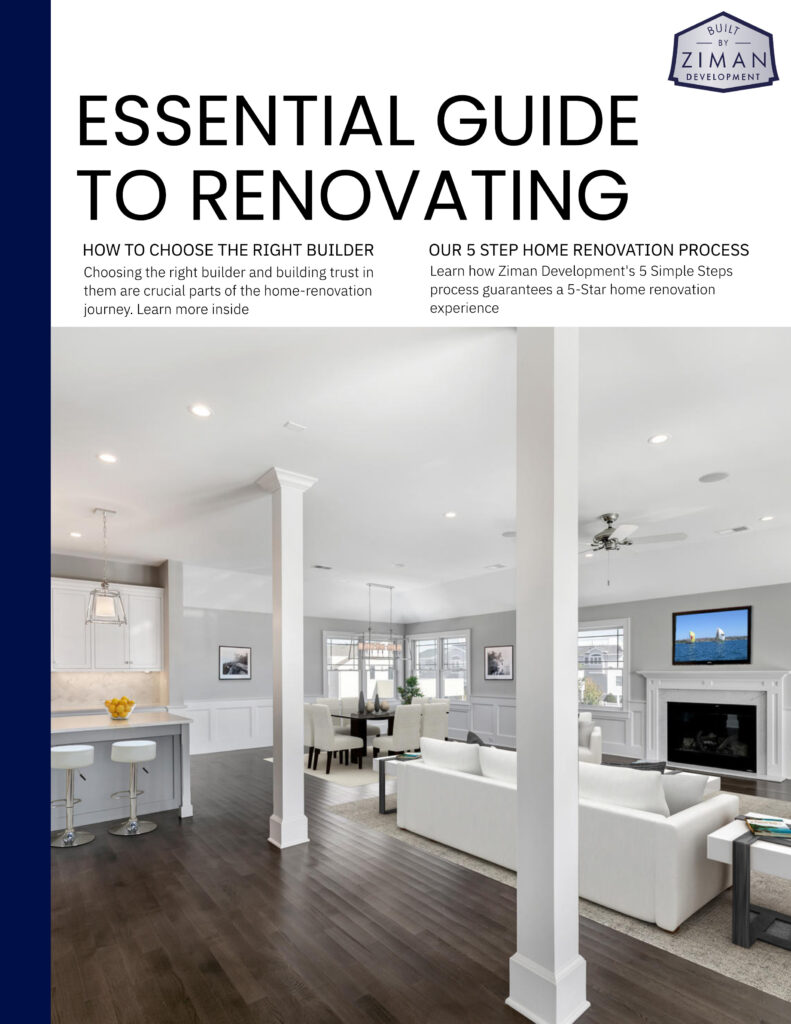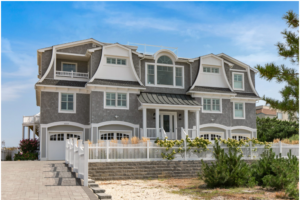
When Michael Ziman walks the beach, he picks up trash without thinking twice, a habit rooted in spending every childhood summer on Long Beach Island, where the natural beauty of the place first took hold of him.
“I wasn’t the kid sitting inside on the couch,” he recalled. “I was outside, experiencing everything the Island had to offer.”
Now Ziman has shaped Ziman Development into a building firm known for high-end coastal homes with a modern edge and an eco-conscious foundation. He also launched the One Tree Pledge, a personal initiative to plant one tree for every square foot of home his company builds or renovates, an effort that has already added more than 250,000 trees to reforestation projects.
But Ziman’s story starts with his father, who founded the company in 1998. As a teenager, Ziman watched his dad dabble in building, turning a subdivided lot into a pair of new homes near the family’s place on the Island. This early exposure to design and construction sparked a stirring talent.
“I loved watching something go up from nothing,” he said. “It was visual, it was creative, and it had a business side.”
 By the time Ziman had moved on from high school and his summertime LBI ice-cream parlor gigs into his college education in business, he had written a full business plan for what would later become his career. Instead of pursuing the investment banking track many of his peers followed, he found himself knocking on doors, writing letters, and working to acquire his first lot. That first build happened while he was still in school – and he’s been building on the Island ever since.
By the time Ziman had moved on from high school and his summertime LBI ice-cream parlor gigs into his college education in business, he had written a full business plan for what would later become his career. Instead of pursuing the investment banking track many of his peers followed, he found himself knocking on doors, writing letters, and working to acquire his first lot. That first build happened while he was still in school – and he’s been building on the Island ever since.
As his career gained traction, the needs of LBI homeowners began to change. In the years following Superstorm Sandy, Ziman noticed a clear shift: Prospective buyers weren’t just looking at what was for sale; they wanted something tailor-made.
“People started asking, ‘Can you build me something like this on my lot?’” he said. And the shift gave rise to a new part of the business: custom client builds, designed for families looking to stay on LBI for the long haul.
But it was the pandemic that sparked a more personal evolution.
 With projects paused and time to reflect, Ziman, like many others, began to reevaluate what really mattered to him, both personally and professionally. What stood out to him was the atmospheric clarity of the world outside, without so much human activity.
With projects paused and time to reflect, Ziman, like many others, began to reevaluate what really mattered to him, both personally and professionally. What stood out to him was the atmospheric clarity of the world outside, without so much human activity.
“There were stories about cities in China where you could suddenly see the mountains again,” he said. “In India, people could see the Himalayas from city centers for the first time in decades. It was visual and undeniable.”
For someone whose work depends on sight lines and space, the changes struck a nerve. “I started thinking, ‘If my business is contributing to the problem, how can I make it part of the solution?’” he said.
He began researching the environmental impact of building, from the carbon costs of importing materials, to the life cycle of the products used, to the energy consumption of the homes themselves. The answers weren’t always easy, but the outcome was clear: The process had to evolve.
He started by sourcing more local and sustainable materials such as upcycled products and recycled components (like decking made in part from water bottles). His team began optimizing insulation and air sealing, installing high-efficiency systems, and improving the overall building envelope to reduce energy use. Ziman also began studying Passive House standards, a European building philosophy that emphasizes airtight construction and minimal energy consumption, which he’s testing on a project in upstate New York. “But the goal is to apply what works here on the Island, too,” he said.
He’s realistic about the challenges, but hopeful about the momentum. “It’s not about perfection,” he said. “It’s about doing better and always evolving.”
 Ziman’s One Tree Pledge emerged from the same mindset. The idea is simple: For every square foot of home built or renovated, his company donates a tree, planted on federally protected land. The math adds up fast. It’s a way, he said, to offset the impact his industry can’t entirely eliminate, and so far, they’ve planted more than a quarter million trees.
Ziman’s One Tree Pledge emerged from the same mindset. The idea is simple: For every square foot of home built or renovated, his company donates a tree, planted on federally protected land. The math adds up fast. It’s a way, he said, to offset the impact his industry can’t entirely eliminate, and so far, they’ve planted more than a quarter million trees.
“It’s not a silver bullet, but it’s a common-sense place to start,” he said.
While sustainability has become a hallmark of his work, Ziman hasn’t lost sight of the emotional side of home building. He sees each project as someone’s dream and part of the legacy of Long Beach Island.
“We’re not just building houses,” he said. “We’re helping families create memories. If we do it right, the house becomes part of the story.”
That story, of course, is evolving. Ziman acknowledges the Island has changed. Homes are larger, the zoning codes tighter, and the market less accessible than it once was. Still, he believes it’s possible to design with integrity and respect for the environment.
“People want to feel connected to nature here,” he said of building with the outdoors in mind with big glass, covered decks, and outdoor living spaces. “We’re blending the indoors and the outdoors wherever we can.”
And when it comes to the homes themselves, he hopes his clients, and the broader building community, will come to understand one essential truth: “You don’t have to sacrifice sustainability to build something beautiful,” he said. “You don’t have to make trade-offs. You just have to care.”
